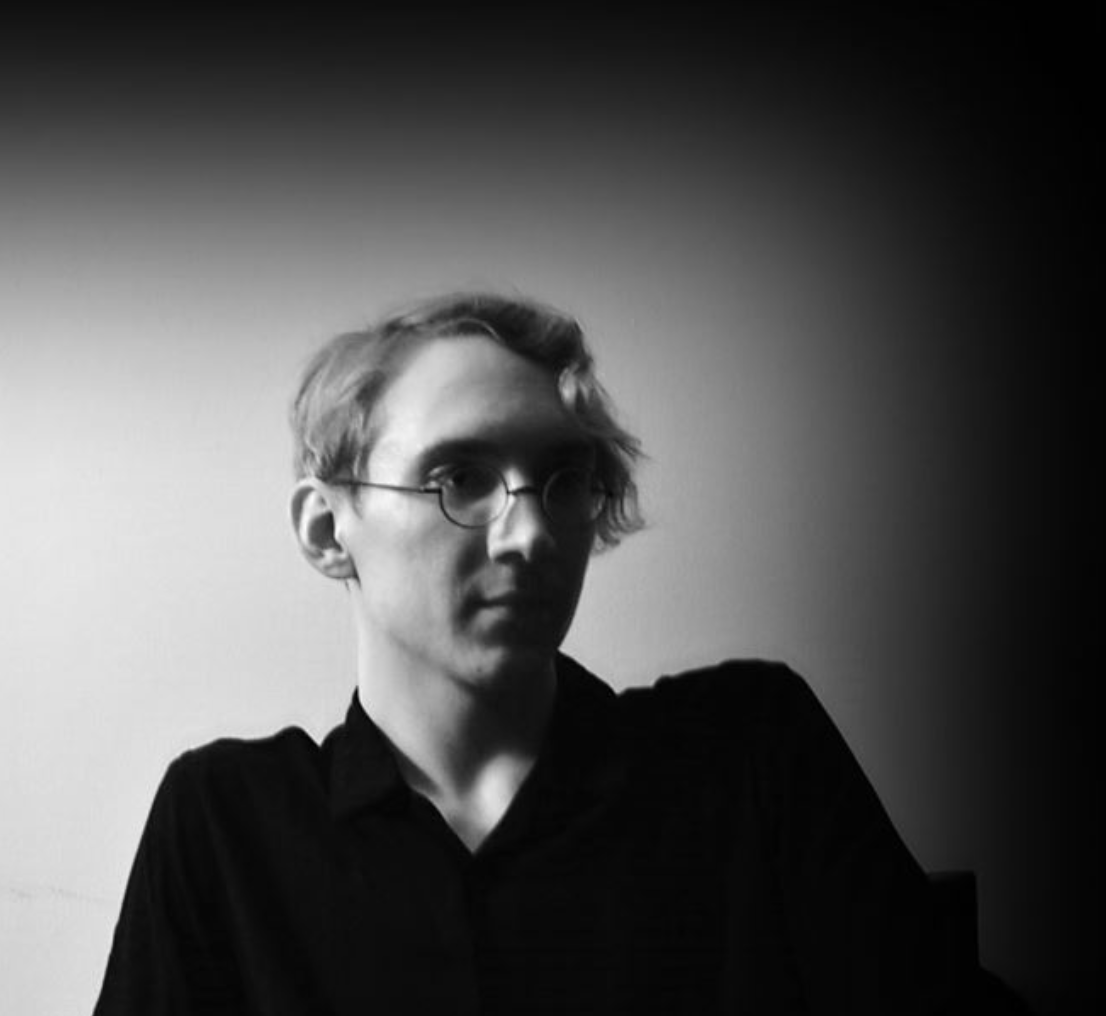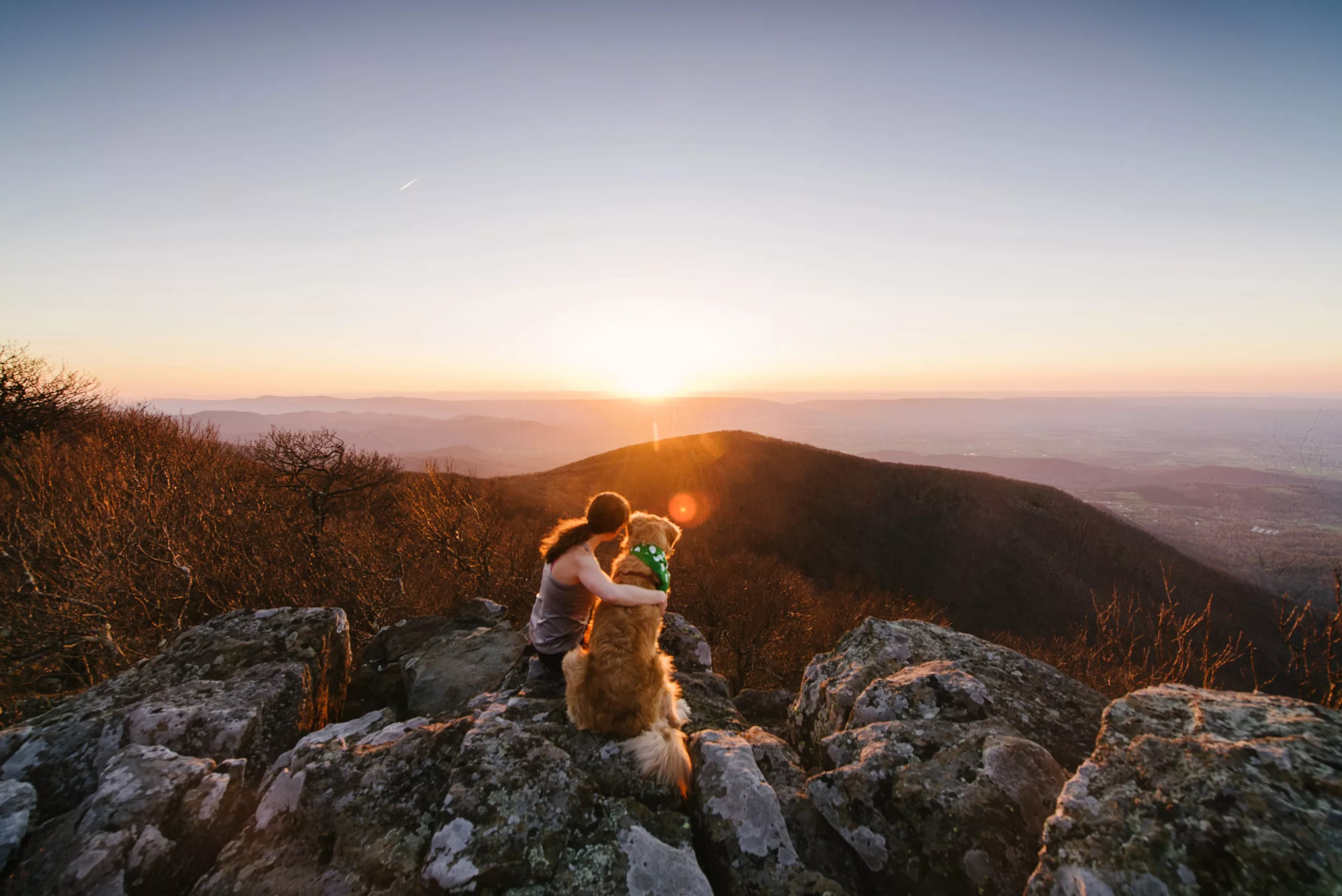Celebrating the Irish spirit and making it their own.

The Knotted Circle is an exploration of Celtic music by two musicians (Kinnfolk) who feel in love with the music of Ireland and then fell in love with one another in Roanoke, VA.
Konstantin Rega: So what inspired this new album, The Knotted Circle?
Julie: I think both albums have been snapshots of where we were at the time. Traditional tunes that we’re performing or that we loved at the time, or that we find to be a part of our musical journey.
When we were trying to come up with the name for the album, we ended up with the knotted circle, because we were thinking a lot about what it means to be Americans playing traditional Irish music, traditional Scottish music.
And we were kind of thinking about lineage of music, and how it’s not really just a straight line, straight from the past of Ireland to the present Ireland. There’s several lines, and they’re constantly referring back to themselves and to one another—back to the past, back into the present. So we thought this is kind of a circle.
And with the number of people doing this globally, in America, in Ireland, (we love Celtic bands in Japan, too), we’re like, this is not only a circle, it’s a very knotted circle. So that was kind of a nod to how we conceive of ourselves being in the kind of global continuum of Carnatic music.
Josh: So it’s not just Celtic music, but also the influence it’s had on the creation of old time music and Appalachians. We’ve been involved with an old time jam that meets every week in town for many years. And we found that over the years, some of that also seeped into our Celtic playing.
Julie: We’re very active in local music scenes. So we’re very much a part of the kind of the living culture of this music. Josh actually included a nod to how Irish music and old time are connected. The second track is called The Transatlantic Set.”
Josh: Yeah, so basically, I was looking for tunes that would be played both in old times/bluegrass, as well as Irish music. We selected one song that was written by an American about his family’s immigrant experience. It’s called “Kilkelly, Ireland.” So we were also trying to latch on to songs that were spanning the Atlantic, much as we are with the musical heritage that we’re tapping into.

W138
So with playing Irish music and such, where did they kind of start from?
Josh: Well, I’ve been playing music since I was 10. And around the time that I started playing in orchestra, my grandpa just randomly decided that he wanted to learn how to play the bagpipes. Because we were both learning a new instrument together, I was learning a lot of the tunes that he was. He actually ended up competing in a bunch of Highland Games as well. And he still teaches bagpiping to this day in Danville.
And so I’ve always been obsessed with Celtic music just from that. Every time we went to visit up there was always Celtic music playing in their house and other family members got into Celtic fiddling later on.
Julie: I’m actually from Alabama and my parents had a lot of Celtic CDs. I learned a lot of my Celtic music from those recordings. And I think a lot of people come by it that way. And once I moved up to Roanoke in 2016 for my MFA, I found the Irish session. And where I met Josh.
It’s really where I found community in Roanoke. It’s where I really started feeling like I belonged. So I kind of went from CD recordings to like complete immersion in the live music tradition that is in Roanoke.
And so now, who do you turn to for inspiration?
Josh: Kate Rusby’s one of my early influences. And Cathy Jordan, the lead singer of dervish. And I love their sound, so I’m trying to learn a lot more from her. We’ve found the Gothard Sisters to be fantastic; they’re also just kind of great mentors, too.
Julie: Andy Irvine was probably one of the biggest influences. And I met Andy Irvine in 2012. Before I knew who he was. Also, Patrick Street, who came to my college. I bought their album and if it had been a record, it would have lost its grooves.
Going forward, are you happy with the sound you’re producing or are there still places to explore?
Julie: That’s a hard question to answer because I’m never happy with what I do. But that’s what makes me continue to improve and work on things and get better. I’m very pleased with how this came out. Like we did just fine with our first album, I think this one came out even better. I’m excited to see how things continue to grow and improve. We have all kinds of ideas and how to expand our sound.
But the core of what we do, I want to keep that. I like the instruments we play. And I love that we can make quite a lot of noise as two people. We’re both actively trying to learn new things; I’ve been learning the tin whistle and a little bit of harp.
Josh: There’s a whole other set of traditions that come with singing and Gaelic. So I’ve been exploring those areas just to understand them a little better. It’s actually been amazing. I mean, the music world is expansive. And Celtic music is definitely a niche. But once you dive in, you’d have to live multiple lifetimes to be able to learn everything about it. Many people think this stuff’s super old. But a lot of the musical tradition has only been around since the 1960s.
How do you see studio recording vs live performance?

Julie: I will say that we’ve recorded the album at Fainting Goat Studios in Bedford. It’s run by Willie Gurley, who is both an excellent sound engineer, and he’s become a very close friend. He makes the experience fun and gives good feedback, too. And he’s able to do it without critiquing the music itself, really.
There’s a difference between the living tradition—which is like your jam sessions or your concerts—versus creating a musical record that people can listen to for all time. That’s an example of what the song is supposed to sound the best that you can do it.
So, you know, it’s two different games, really, but I really have enjoyed recording, and I’m looking forward to getting back in the studio and doing more in the future.
And what are your music plans now?
Julie: Well, in conjunction with the city of Roanoke, we received a grant through the National Endowment of the Arts. We’re going to be writing songs about Roanoke through a Celtic lens. By the end of June is when we’re going to have that completed and perform the body of work.
It’s kind of like taking what we’ve been doing, finding traditional songs, and create our own about Roanoke, our home. So we’re kind of digging into the geography and the folk legends and things like that. It’s going to be a fun process of discovery.









